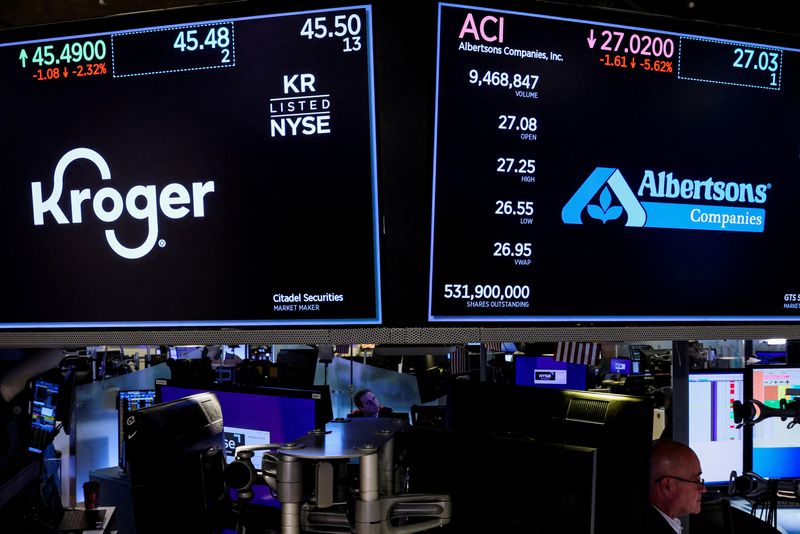WASHINGTON (Reuters) -Advocacy groups, including the Open Markets Institute and National Farmers Union, on Thursday asked U.S. antitrust enforcers to stop Kroger (NYSE:KR) Co's planned $25 billion purchase of rival grocery giant Albertsons Companies Inc.
In a letter to Federal Trade Commission Chair Lina Khan, the groups argued that the deal would raise prices in some parts of the United States and hurt some grocery store and warehouse workers.
"As organizations representing farmers, workers, consumers, and advocates for fair food systems, we urge the Federal Trade Commission to block Kroger's acquisition of Albertsons," the letter said.
Kroger said in a statement that it did not expect the deal, if it goes forward, to lead to any store closures, which would hurt workers.
"With a broader network and even more customers to serve, we believe the merger will benefit our suppliers, including farmers, as it will allow for a more efficient distribution chain, provide opportunities to grow sales together and reduce waste," the company said.
Kroger Chief Executive Rodney McMullen argued this week in a congressional hearing that even after the deal, his company would remain smaller than Walmart (NYSE:WMT).
The FTC declined comment.
The groups, which include Food and Water Watch, argued that the biggest food companies pay fees to Kroger and Albertsons to ensure shelf space for their products, leaving little room for new or community-based suppliers.
"Combining Kroger and Albertsons will also create a new mega-grocery buyer with exceptional buyer power to squeeze its suppliers, shrinking farmers' and workers' share of the food dollar," the letter added.

The deal has faced skepticism from lawmakers who have expressed concern that the tie-up could raise already-high food prices. It also comes as the Biden administration takes a more aggressive approach to antitrust enforcement.
The groups also said that workers, including those at the stores, could lose jobs or bargaining clout if the deal goes forward. "Many Kroger and Albertsons store workers already struggle to meet their basic needs," they said, noting that a 2021 study of Kroger workers found that 75% had trouble buying groceries.